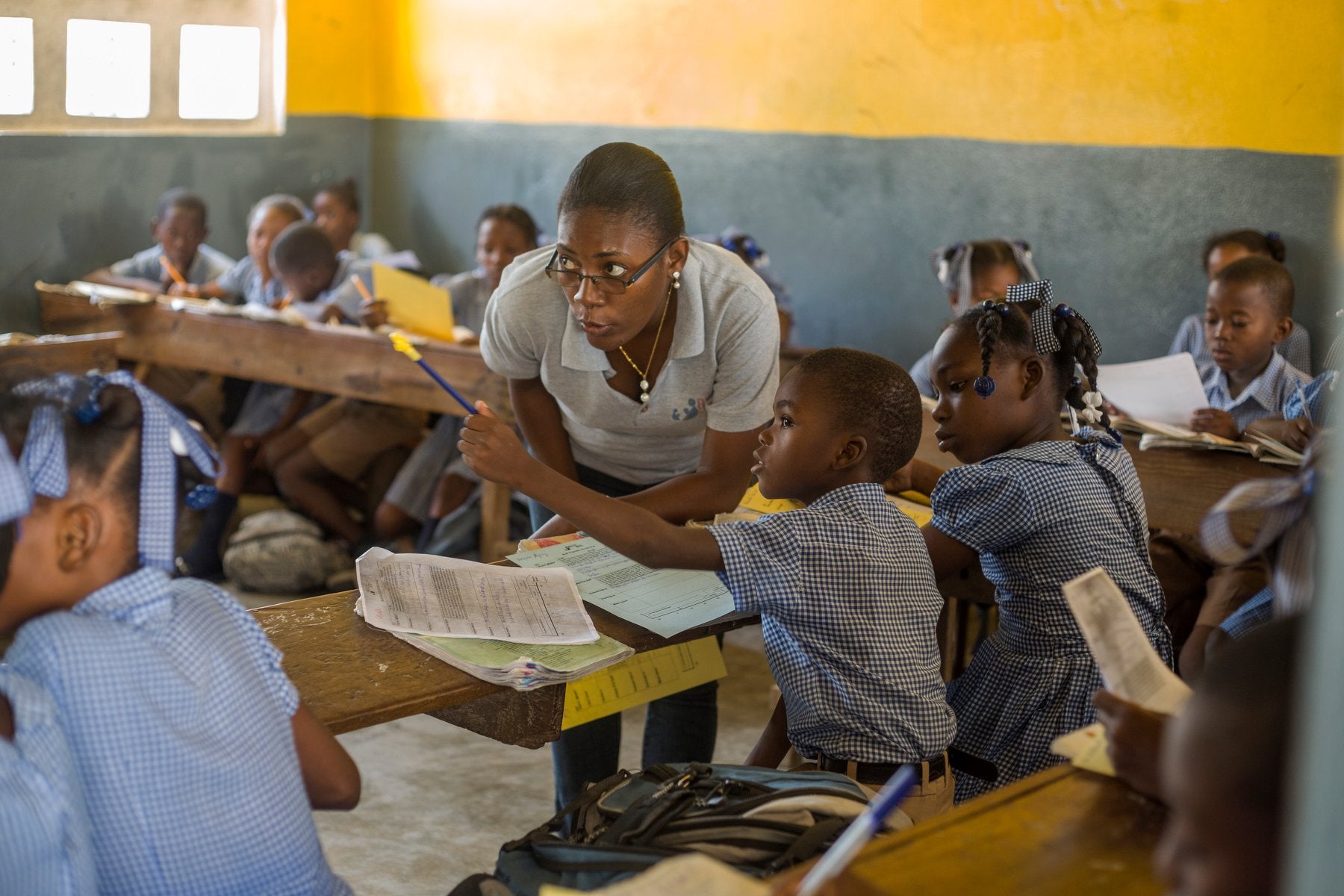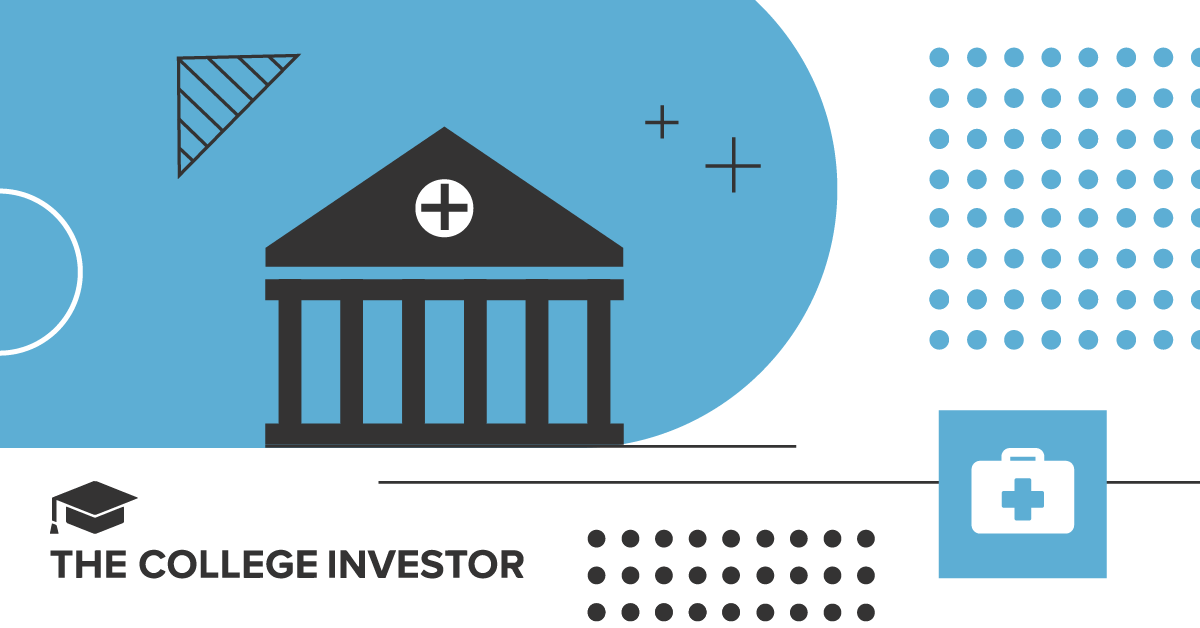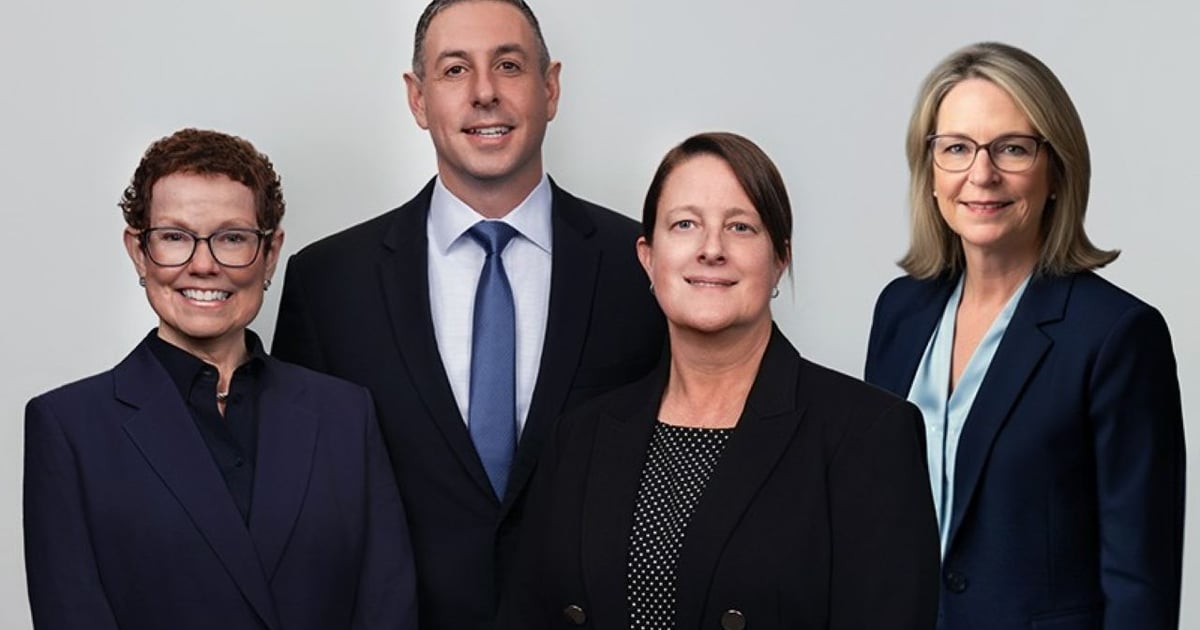From Vision to Reality: How Anseye Pou Ayiti is Empowering Haiti’s Rising Leaders – The Aspen Institute


Only 30% of Haitian children complete primary school, with a mere 1% reaching university, and just 20% of teachers in Haitian schools are formally trained. These staggering numbers inspired Nedgine Paul Deroly to take things into her own hands. With a commitment to expand the narrative of mighty Haiti, CEO and Co-Founder of Anseye Pou Ayiti (APA), Nedgine, along with Aspen Global Leadership Network Fellow Jean-Claude Brizard (Pahara Fellowship), who serves as the Founding Board Chair, leads a transformative movement aimed at tackling the deep-rooted challenges in Haiti’s education system. APA is striving to address the de-Haitianization of education, where teaching predominantly takes place in French rather than the mother tongue of Haitian Creole. By fostering a culture and curriculum that honors Haitian identity, APA is disrupting the colonial legacy in education and paving the way for a new era of civic leadership and community transformation. Ultimately, APA is equipping a network to work together and build the nation’s first quality public education system informed by the country’s rich culture, ensuring a brighter future for the next generation of Haitian leaders.
2024 McNulty Prize Winners Nedgine Paul Deroly (left) and Jean-Claude Brizard (right) pitch their vision for Anseye Pou Ayiti at the 2024 Aspen Action Forum in Aspen, CO.
In recognition of their moral courage to take up this challenge, visionary leadership, and promising impact thus far, Nedgine and Jean-Claude were named Winners of the 2024 John P. McNulty Prize at this year’s Resnick Aspen Action Forum. During the event, we had the opportunity to talk and explore their leadership journey, the sources of their hope and resilience, and the wisdom that has shaped their pursuit of APA’s mission.
Nedgine: The problem we aim to solve is rooted in inequity. Inequitable education systems prevent all kids from thriving and receiving the quality education they deserve.
Although Haiti became the world’s first Black republic in 1804, today, many children are still denied their right to quality education. At Anseye Pou Ayiti, we asked, “How can we disrupt a system rooted in dehumanization and de-Haitianization? How can we build the nation’s first true public education system by embracing and leveraging our assets, culture, customs, history, and language?”
Nedgine: The impetus for launching Anseye Pou Ayiti stems from my upbringing, where my parents said, “We will never forget the importance of being proud of our heritage, of our background, and the fact that Haiti is always and has always been a mighty nation.” And so, I always had that sense of home and that sense of obligation to return to Haiti and join forces with others who’ve been working for educational equity for generations. I am humbled that Anseye Pou Ayiti is part of a long legacy of freedom fighters committed to making Haiti mighty once more.
Nedgine: Ten years in, Anseye Pou Ayiti has made a transformational impact. We’re proud to soon have 50,000 leaders, including teachers, parents, school, and student leaders, coming together to, “We have the solutions already within our communities. We have what it will take to leverage these solutions and leverage our community identity and assets to make sure that equity and justice are part of the conversation.”
We’re grateful to have tripled student outcomes and on-time grade-level passing. We’re now working with 116 rural primary schools, where we’re eliminating corporal punishment, we’re integrating the power of Haitian Creole, our mother tongue, in teaching and learning. Our students are embracing hands-on teaching and learning experience, as opposed to rote memorization. They are understanding not just the importance of academic excellence, but also becoming leaders in their own right and contributing to the solutions to ensure that their communities thrive.
Jean-Claude: When you look at what we’re doing in terms of the development of teacher leaders and parent leaders, and what we often refer to as “konbit,” we have hundreds of alumni who are now leading efforts and working with the ministry. Parents are reshaping narratives in their homes and communities. We’ve got over 50,000 people now who have locked arms and really believe in the fact that we can restore our proud nation founded over 230 years ago.
Nedgine: At Anseye Pou Ayiti, we believe listening is leadership. Before launching our movement, we spent three to four years learning from community elders, retired teachers, students, and family members, asking, “How are we at our best?” Listening to their wisdom, expertise, and assets allowed us to launch and continue as a dynamic, evolving, future-forward organization. This ensures our impact reflects the wisdom and results of our community.
APA’s CEO & Co-Founder Nedgine Paul Deroly engages with teachers and young students in Haiti. Photo credit: Emerson Collective
Jean-Claude: To understand how we integrate communities into the work that we do, one has to believe in the whole concept of collective action. One has to understand the history of Haiti and what created the first post-colonial free Black nation in the world. One that brought a lot of people together to do this kind of work. We believe that to get to where we want to get to, yes, the classroom is a microcosm, the school is a microcosm, but ultimately it is a community at large that will help us move and change the narrative, and build a new leadership in the nation.
Nedgine: I believe that light is something that is persistent. Light can truly shape our way forward when we feel like we’re just engulfed with darkness, inequity, injustice, and oppression.
The media often focuses on Haiti’s darkness, but there’s so much light in our communities that deserves recognition. There is so much that we need to shine a light on because that light exists. We want to amplify the work, wisdom, and assets of those closest to the challenges because the solutions already exist.
What gives me resilience is twofold: first, knowing that history can lead the way forward. When we look into history, we know that there are going to be solutions. Haiti’s history shows that even in darkness, there’s always been light, reminding me that we’re not imagining an impossible future. Second, staying close to people keeps me going. We can’t do this work alone, and being in community with those who share the journey is essential.
Jean-Claude: What gives me hope and resilience are the examples I’ve seen in both my work in the US and Haiti. Witnessing classrooms and individuals doing amazing work, showing purpose, resilience, and success, reminds me that anything is possible. I often advise others to find that one classroom, teacher, or individual to talk to when feeling discouraged. For me, these encounters reaffirm that anything is possible when people work hard to do what’s right for young people.
Nedgine: For those looking to engage in justice and liberation work, my advice is to commit for the long haul. Nothing will change overnight, but what is most sustainable, what is most equitable, what is most important for our communities to thrive, and for all people to be respected and have their full dignity, it’s going to take time. At Anseye Pou Ayiti, we’ve embraced the mindset of going “as fast as we can, but as slow as we must,” which has led to lasting results. And the work speaks for itself. The results become more sustainable over time.
One of the best pieces of advice I’ve received is to never forget who I am as a person in the midst of the work. It’s crucial to decolonize and ensure equity and justice while staying true to my beliefs, as these shape the work across an organization.
APA’s Founding Board Chair Jean-Claude Brizard poses a photo with students in Haiti.
Jean-Claude: For leaders in our position, it’s crucial to have a passion for the work. Passion drives everything—without it, the work may feel technocratic or artificial. When you bring passion, funders and people listen because they can see the purpose behind it. As Jonathan Haidt suggests, the emotional mind leads the logical mind, which is important to remember.
Secondly, learn from and lean on those who have done this work before. You’re not alone; others have faced similar challenges. The best advice I received was to stay the course, knowing it’s not a straight line but a jagged one. Keep inviting like-minded people to the table, lock arms, and pull together.
Lastly, my journey began here in Aspen about 12 years ago when I asked how to start this work with a full-time job. The advice was to find an amazing leader and lock arms with them, and that’s exactly what I did.
Learn more about APA’s work in the mini-documentary created by Freethink and the McNulty Foundation.
About the John P. McNulty Prize: Created in 2008 by Anne Welsh McNulty in honor of her late husband, the Prize in partnership with the Aspen Institute awards $150,000 to each winner, along with support to elevate their efforts. The winners are selected by a distinguished international jury, which includes leaders like Darren Walker, Cheryl Dorsey, Olara Otunnu, and Brizio Biondi-Morra.
About the Aspen Global Leadership Network: The Aspen Global Leadership Network (AGLN) is a dynamic, worldwide community of nearly 4,000 entrepreneurial leaders from over 60 countries. Spanning business, government, and the nonprofit sector, these leaders share a commitment to enlightened leadership and the drive to tackle the most pressing challenges of our times. Through transformative Fellowship programs and gatherings like the Resnick Aspen Action Forum, AGLN Fellows have the unique opportunity to connect, collaborate, and challenge each other to grow and commit to a lifelong journey of impact.
More from the Action Forum: Under the theme “Only Light Can Do That,” inspired by Dr. Martin Luther King Jr., the 2024 Resnick Aspen Action Forum was an invitation to reflect on finding resilience and hope during challenging times and discovering common ground despite differing views. Explore more inspiring content on leadership and change-making from the Action Forum here.

Abe Student LoansBefore applying for a private student loan, DR Bank and Monogram LLC recommend exhausting all financial aid alternatives...

Warren-Fantano Wealth Management, a team managing over $1 billion in client assets, has joined Janney Montgomery Scott LLC and will...

If your bills feel unmanageable, you aren’t alone. Recent reports found that 30% of people are less able to afford bills today than they...